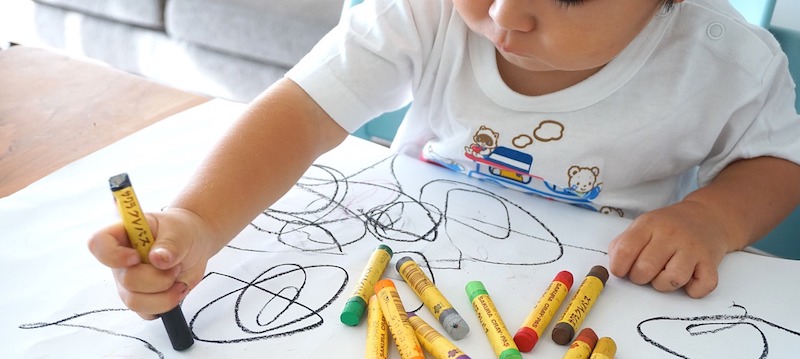Nursery education, often known as early years or pre-primary education, plays a crucial role in laying the foundational stones for a child’s lifelong learning journey. In these formative years, children are incredibly receptive, making it an opportune time to introduce them to the world of structured education in a nurturing environment. Here’s an in-depth look at nursery school and education, its importance, components, and benefits.
1. The Essence of Nursery Education
Nursery education is a structured yet flexible pedagogical approach in schools that focuses on the holistic development of a child. It goes beyond just reading, writing, and arithmetic, delving into emotional, social, physical, and cognitive development.
2. Key Components of Nursery Education
- Play-based Learning: Children learn best when they’re engaged and having fun. Play-based curricula introduce concepts through games, storytelling, arts, and hands-on activities.
- Language Development: This includes listening, speaking, early literacy, and even introducing a second language.
- Numerical Skills: Basic concepts of counting, shapes, and patterns are introduced.
- Motor Skills Development: Both fine (like holding a pencil) and gross (like jumping) motor skills are honed.
- Social Interaction: Children learn to interact with peers, understand sharing, and develop empathy.
- Creativity and Arts: Drawing, painting, music, and drama foster creativity.
- Understanding the World: Simple science experiments, exploring nature, and understanding their environment.
3. Benefits of Nursery Education
- Builds a Love for Learning: A positive early education experience can foster a lifelong love for learning.
- Boosts Self-confidence: Achieving small milestones in a supportive setting boosts a child’s self-esteem.
- Prepares for Formal Schooling: It provides a gentle transition from home to the more structured world of primary school.
- Develops Social Skills: Interacting with peers helps children understand different perspectives and cultures.
- Encourages Curiosity: A good nursery programme nurtures a child’s innate curiosity.
4. Considerations When Choosing a Nursery
- Environment: The setting should be safe, welcoming, and stimulating.
- Staff: Well-trained, passionate educators are crucial.
- Curriculum: It should be comprehensive, catering to all facets of development.
- Facilities: Check for play areas, reading corners, and other learning aids.
- Parental Involvement: Nurseries that encourage parental involvement often provide a more holistic experience.
5. The Changing Face of Nursery Education
With the advent of technology, even the youngest learners aren’t left behind. Many nurseries nursery schools are integrating tech tools like interactive whiteboards and educational apps to enhance learning. However, a balanced approach ensuring screen time doesn’t overshadow physical play is essential.
Early Childhood Education
Early childhood education (ECE) refers to the structured educational approach tailored for children from birth to eight years old. Recognised globally as a crucial component in a child’s development, ECE provides the foundational skills, behaviours, and attitudes that shape their lifelong learning trajectories.
Significance of Early Childhood Education
During the early years, a child’s brain develops at a phenomenal rate, forming neural connections faster than at any other time in life. This period is marked by:
- Cognitive Development: Rapid acquisition of knowledge, reasoning, problem-solving, and language.
- Social and Emotional Growth: Understanding emotions, developing relationships, and cultivating self-esteem.
- Physical Development: Honing motor skills and establishing health and nutrition habits.
Key Components of Early Education for Childhood
- Play-based Learning: Recognising that young children learn best through play, curriculums often integrate structured and unstructured play.
- Structured Activities: Guided reading, simple mathematics, science experiments, and arts introduce foundational academic concepts.
- Social Interaction: Group activities, storytelling, and play sessions foster teamwork and empathy.
- Sensory Activities: Engaging the five senses, these activities enhance experiential learning and cognitive growth.
- Physical Activity: Time for outdoor play and physical exercises aids in developing gross motor skills.
Primary School
Primary school, also known as elementary school in some regions, is the first step in formalised education for many children everywhere. Spanning the ages between 4 to 11 or 5 to 12, depending on the country, this period is marked by foundational learning across various subjects and the cultivation of essential life skills.
Primary School: A Crucial Phase in the Educational Journey
Primary school, also known as elementary school in some regions, is the first step in formalised education for children. Spanning the ages between 4 to 11 or 5 to 12, depending on the country, this period is marked by foundational learning across various subjects and the cultivation of essential life skills.
The Role of Primary School
- Foundation Building: Primary education is designed to equip children with basic literacy, numeracy, and general knowledge, setting the stage for more advanced learning in later years.
- Holistic Development: Beyond academics, primary school plays a role in the social, emotional, and physical development of a child.
- Value Instillation: Lessons on ethics, morals, and cultural values often find their way into primary education, laying the groundwork for civic consciousness.
Pre school: A Gentle Introduction to the World of Learning
Preschool, often seen as the bridge between home and the formal educational system, plays a pivotal role in a child’s early development. Typically catering to children aged between 3 and age 5, preschool focuses on nurturing a child’s curiosity, social skills, and foundational cognitive abilities.
Importance of Preschool
- Building Confidence: Achieving small tasks and being praised for it helps in boosting a child’s self-confidence.
- Social Skills: Children learn to share, resolve minor conflicts, and play cooperatively with peers.
- Pre-academic Foundations: While it’s not about intensive learning, children get introduced to numbers, letters, and general knowledge.
- Routine and Structure: A structured setting instils a sense of routine, which plays a crucial role in time management and discipline later in life.
Education and Training Inspectorate (ETI)
The Education and Training Inspectorate (ETI) is an integral institution in many countries, responsible for the external evaluation of educational establishments. Its primary role is to drive improvements in education and training. While the specific mandate and features might vary across regions, the core function of such institutions remains constant.
Tax-Free Childcare
Tax-Free Childcare is a government initiative designed to provide financial relief to working parents or guardians with childcare costs. While the specifics can vary from one country or region to another, the fundamental premise remains consistent: providing tax advantages or direct financial aid to these families offset the expenses related to childcare.
Benefits of Tax-Free Childcare
- Financial Support: The main advantage is financial relief. The government contribution can significantly reduce the net amount parents spend on childcare.
- Flexibility: Often, these schemes cover a broad range of childcare options, from nurseries to after-school clubs and holiday camps.
- Ease of Use: Modern tax-free childcare systems are typically user-friendly, allowing parents to pay their childcare provider directly from these accounts.
Who are Early Years Providers?
Early years providers offer education and care services for children before they start school. These providers work within a structured framework, often set by governmental or regulatory bodies, to ensure children receive a rounded early education experience.
Nursery education is much more than just a preparatory step for formal schooling. It’s a pivotal phase that shapes a child and family’s outlook towards learning, their interpersonal skills, and overall worldview. By providing a rich, nurturing, and stimulating environment, we can ensure that children embark on their educational journeys with enthusiasm, curiosity, and a robust foundation.




Recent Comments